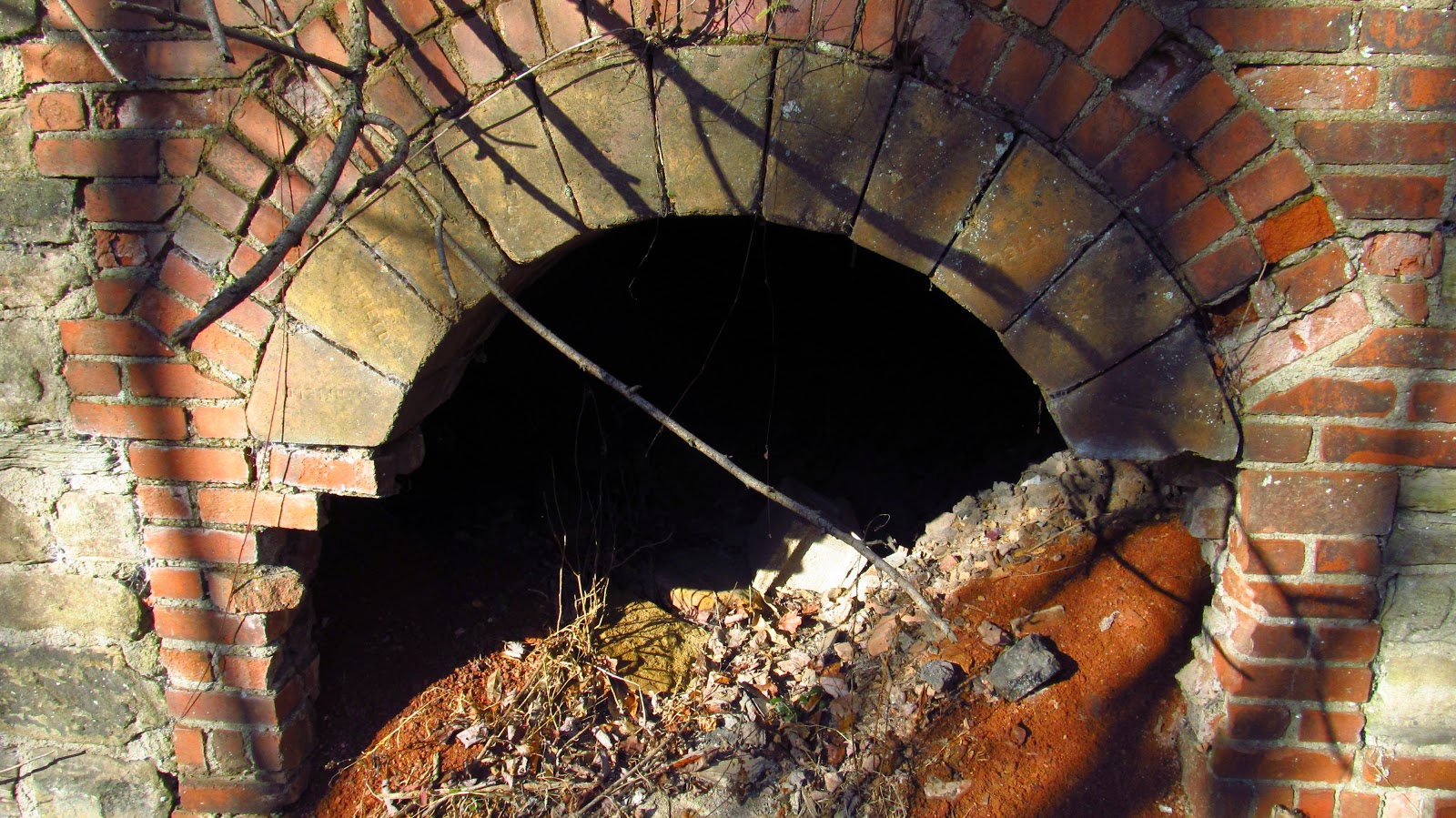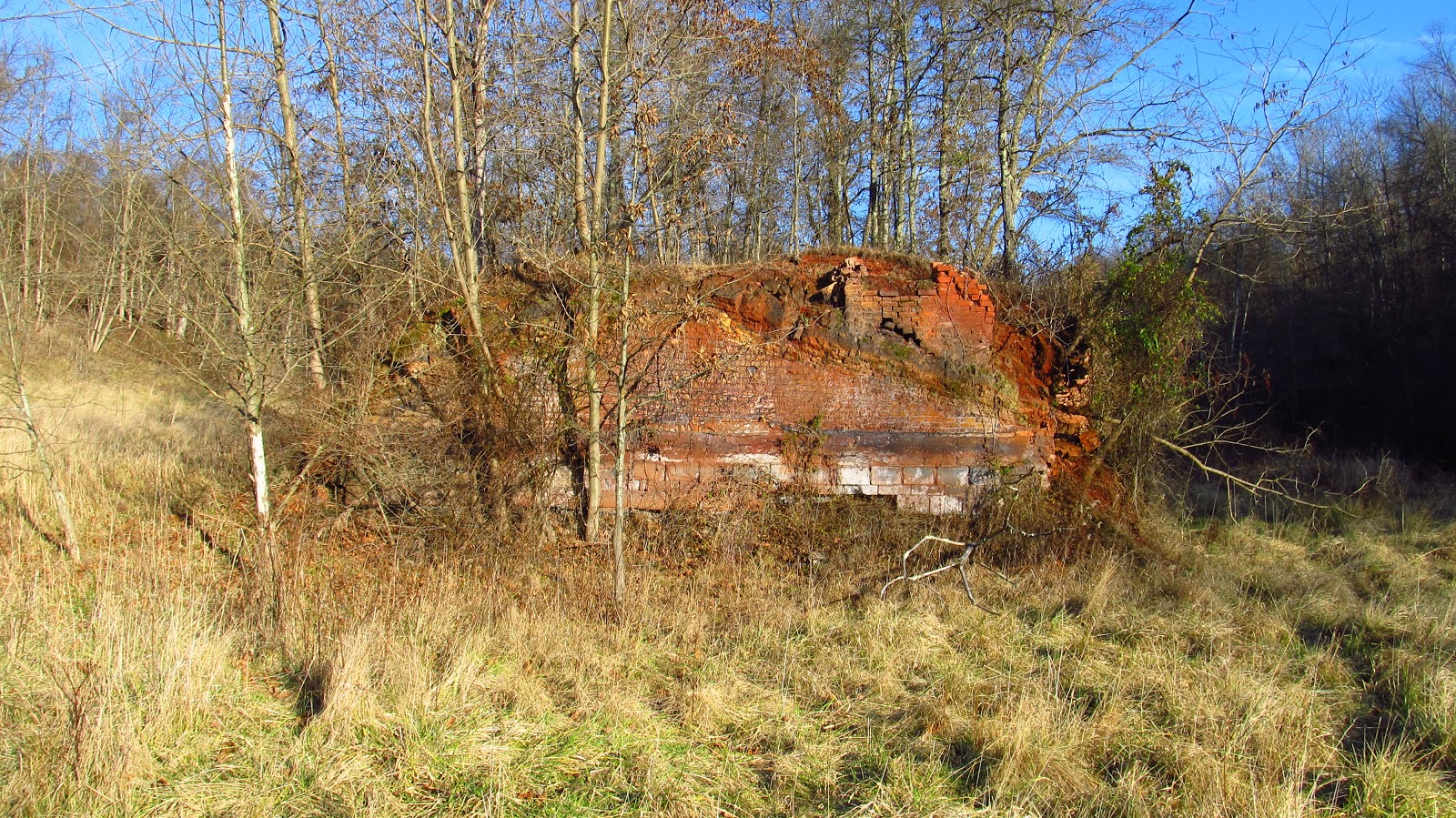Today we descended upon Masontown, PA to explore their Griffin No.1 and No. 2 Coke Works. The Griffin coke works date back to 1900 and were the first ovens fired in the "New District" of Lower Connellsville. Built by the Bessemer Coke Company of Pittsburgh, the No. 1 Plant consisted of 310 rectangular coke ovens while the No. 2 Plant consisted of 198 standard beehive ovens. In June of 1945 the Hecla Coal and Coke Company purchased both coke plants which before that time had been operated by the Merchants Coal Company. However, there is an 1925 article stating that the Hecla Coal and Coke Company owned the coke works. Did they buy them back?
Today there are two banks of rectangular ovens at Griffin No. 1, the mine maps show it as a solid bank so the middle may have been destroyed. The maps also show a second, smaller bank in this area which is no longer extant. These ovens are located north of Cats Run and south of Route 166.
Griffin No. 2 consists of two banks of beehive ovens on each side of Cats Run. The ovens we explored were located south of the run. There are also larry car pillars on the south side and what appears to be part of a tipple on the north side. We could not find a place to cross Cats Run due to high banks. The only access to the ovens is by descending a high, steep slate dump unless you really want to cut your way through. We opted for the slate dump.
Griffin No. 2
 |
| Looking down from the slate dump. |
 |
| At the bottom. |
 |
| Looking east. |
 |
| Another view of the slate dump. |
 |
| The end of the block. |
 |
| These are the piers for the larry track. |
 |
| Looking toward the ovens. |
 |
| Possible tipple ruins north of Cats Run. |
 |
| It's tough to see the many piers leading up to the tipple. |
 |
| An older section of the bank. Other sections used concrete block for the retaining walls. |
 |
| An oven with all the arch blocks intact. |
 |
| An oven with all the arch blocks not intact. |
 |
| Concrete block section. |
 |
| One of the arch blocks. |
 |
| A Garfield block from the refractories at Bolivar. |
 |
| A crawl hole chiseled out between two ovens. |
 |
| These are the ovens located north of Cats Run. Taken from on top of the south block. |
 |
| North Block. |
 |
| A nice trunnel block. |
 |
| North block. |
 |
| A piece of hardware sticking off of the south block. |
 |
| A final view of the north block. |
 |
| I thought this was interesting with the decaying brick and the intact mortar. |
 |
| A parting shot of Griffin No. 2. |
Griffin No. 1
 |
| The way into here ended up being a bad decision. We found a much easier way in on the way out. But to get in we went through this swamp. |
 |
| Some of the nice rectangular ovens. There's only a handful of these sites left nowadays. It's always nice to find some rectangular coke ovens. |
 |
| A view inside the oven. These nice two ended ovens were built this way so a coke removal machine could simply push the coke out through the other end. |
 |
| They're not in the best condition. |
 |
| A close up of the interior brickwork. |
 |
| This is end of part of the block. This doesn't look like a normal block end. This and the mine maps lead me to believe part of these ovens were demolished. |
 |
| Covered in vines. |
 |
| A real nice shot looking east. |
 |
| This is pretty much the end of the intact ovens. After oven 16 they have mostly fallen into rubble. |
 |
| Ovens 17 and 18. |
 |
| I thought it was interesting the way the bricks sat in between these two ovens. |
 |
| Oven 60. |
 |
| Looking through the oven. |
 |
| The blocks on these ovens were all relatively intact. |
 |
| One of the collapsed ovens. |
 |
| Oven 15 lies in ruins. |
 |
| All kinds of different brick was used on these ovens. |



















